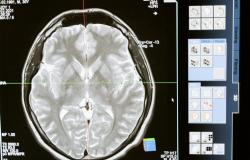Reading time: 2 minutes – Spotted on Science Alert
Everyone knows: the world is getting warmer. Our nights follow this rhythm, which could seriously affect our health. The risk of stroke is significantly higher when nighttime temperatures are warm, explains ScienceAlert. I have to say that “climate change is causing nighttime temperatures to rise much faster than daytime temperatures”as explained by Alexandra Schneider, epidemiologist at the Helmholtz Institute in Munich, at the origin of this recent study.
The team of researchers compared nighttime temperatures with the number of strokes recorded in the German city of Augsburg, all over around fifteen years. A significant increase in the risk of stroke is observed when extremely high temperatures are recorded during the night.
A total of 11,037 clinical cases of stroke were examined at the University Hospital Augsburg between 2006 and 2020. Overall, the risk of stroke increased by 7% during these so-called nights. “tropical”a name designating those where the temperature remained above 14.6°C.
Increased risk of dehydration
The number of strokes has also increased over time… and temperatures. Thus, from 2006 to 2012, only two of these accidents were attributed each year to the heat of tropical nights. On the other hand, between 2013 and 2020, these nights were associated with thirty-three additional cases per year.
Researchers have worked on factors that could more precisely explain these statistics. In particular, they identified the increased risk of dehydration, which is already known to increase the probability of suffering a stroke. Limited access to technologies such as air conditioning could also play a role.
“In summary, changes in underlying drivers of climate, stroke risk factors, and socioeconomic conditions may contribute to increased susceptibility to nocturnal heat-related stroke over time”write the researchers in the article they published in the European Heart Journal.
“Our results clearly show that it is very important to adapt urban planning and the health system to reduce the risks linked to increased nighttime temperatures”warns Cheng He, epidemiologist in the research team at the Hemholtz Institute in Munich.
There is no shortage of solutions. Reducing the impact of urban heat islands during the night within built-up areas is one way. Among the ways to reduce this urban heat, we also find the strategic planting of trees. As for those responsible for the study, they hope that these results will help improve preventive measures. Today in any case, hospitals can provide additional staff coverage when the nights are expected to be hot.






